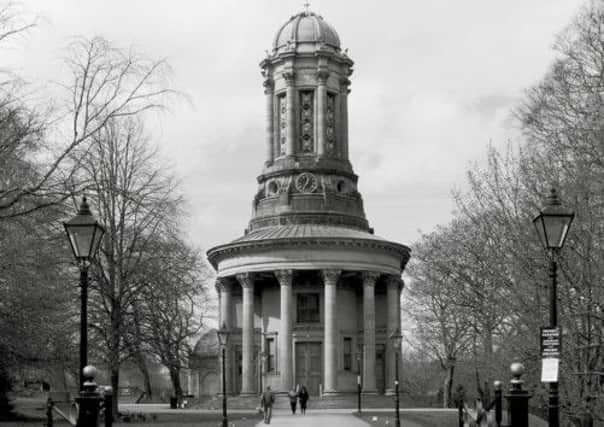The halcyon days when Bradford once ruled the roost


Bradford was not just, once upon a time, the richest city in Yorkshire. It was one of the richest in the world, certainly in the country, and had the kind of influence most other cities could only dream of. It might be hard to believe today when people look from the outside at the much-maligned city, even with its recent addition of a city centre mirror pool, that it once rode so high, but a new book has been published to remind us that Bradford was once at the top of the pile.
Teacher, historian and proud Bradfordian Alan Hall is the man behind The Story of Bradford, a book which he hopes will redress the balance and tell people the forgotten story of the success of one of Yorkshire’s proudest cities.
Advertisement
Hide AdAdvertisement
Hide AdHis book claims that the changes seen in the city have often had consequences on a global scale.
Hall, a retired teacher who taught in schools across Bradford before finishing his career as headmaster of Belle Vue Girls School, believes his claims about Bradford are entirely justified.
“Not only do I think it is not overstating the case to say that Bradford once had a global influence, in a way I think the case has been understated,” says Hall.
“The truth is there were events happening and decisions made in Bradford that had ramifications not just beyond the city, but beyond Britain, across the whole world.
Advertisement
Hide AdAdvertisement
Hide Ad“The Manningham Mills strike led to the creation of the Independent Labour Party which was a forerunner of the Labour party of today. So one of the country’s major political parties, which has had an influence across the world, began here in the city.”
It is not just politically that the city has sometimes punched above its weight. Financially the city was once one of the richest in the world.
“A large part of Bradford’s wealth, in the 19th Century, came from the German immigrants who were living here, hence the area of the city which is called Little Germany,” says Hall.
“The city had the means of wool production and the Germans who came here had the know how of how to sell the product around the world. The Germans left in 1914, at the advent of the First World War, and there is an argument to be had that the city’s slow decline began in the aftermath of the First World War. In the years before the war, however, the city was a major player. Financially the wealth was not spread around the city equally, but in terms of GDP it was right up near the top – and I do mean in global terms.”
Advertisement
Hide AdAdvertisement
Hide AdThe Story of Bradford, published The History Press, was the idea of the publishers. Hall, who is chairman of Bradford Civic Society, was asked if he was interested in publishing a new history about the city. As a Bradfordian, born and raised there, Hall was perfectly placed to write the book, his first, but wanted to write more than a simple history.
He says: “The city was at one time booming. I wanted to look further into the history of that; into the history of how powerful it once was.”
So what happened? There is no denying, that while many in the city hope Bradford can once again return to some of its former glory, it has fallen a long way from its best days.
Hall argues that 40 even 50 years of civic leaders who have lacked vision have contributed to the decline, but the truth is more complex.
Advertisement
Hide AdAdvertisement
Hide Ad“If I knew the answer of how to return Bradford to the heights it was once at then I would be a very famous man,” says Hall. “But it was a combination of factors that lead to the decline.
“Men like Samuel Lister (the mill owner who built the city’s eponymous park) and Titus Salt (who built Saltaire) were one in a million. They led the city and created a huge amount of wealth here, but they come along very rarely.
“There was also the impact of the Bradford Pals. Young men who went to fight in the war, they were impressive young men who might well have ended up carrying on the legacy of Lister and Salt, but they were wiped out before lunchtime on July 1, 1916, so the city lost a whole generation of potential leaders.”
Hall believes the city needs to reinvent itself, in the manner of Leeds or Manchester, to help it grow in the future – and perhaps, if it does that successfully, it could be in with a fighting chance of recapturing its former glories.
Advertisement
Hide AdAdvertisement
Hide AdThose who might take the city forward have in this new book, perhaps, the inspiration they might need.
The Story of Bradford, published by The History Press, is out now priced £18.99.